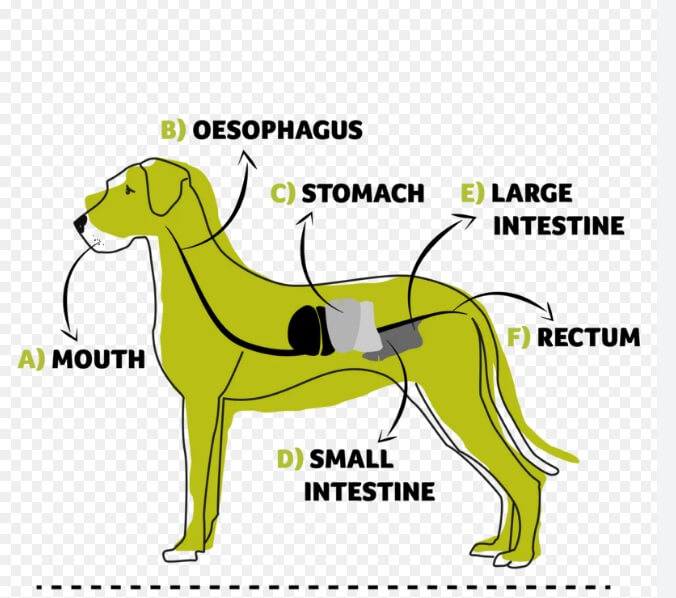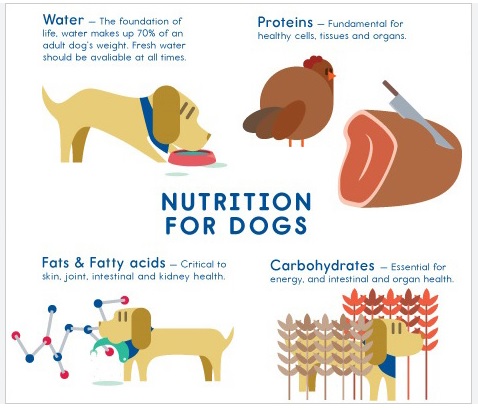According to a recent study, approximately 85 million households in the United States own a pet (American Pet Products Association, 2019). With such a high prevalence of dogs as companions, understanding their dietary needs becomes crucial for providing optimal care.
One key question that has sparked debate among researchers and pet owners alike is whether are dogs omnivores. The classification of dogs as either carnivores or omnivores is not straightforward due to their evolutionary history and the anatomical features of their digestive system.
This article aims to explore the evolutionary background of dogs and wolves, examine the canine digestive system, analyze the nutritional requirements, and evaluate the evidence surrounding plant-based diets for canines.
By presenting a comprehensive overview of this topic, this article intends to contribute to the ongoing discourse on dog diets and assist readers in making informed decisions regarding their pets’ nutrition.
Key Takeaways
- Ongoing debate: dog diets – omnivores or carnivores?
- Implications: ethical considerations, vegetarian diet, environmental impact.
- Proponents: ethical, avoid animal suffering, reduce meat demand.
- Proponents: environmental benefits, reduce environmental consequences.
The Evolutionary History-Are Dogs Omnivores
The investigation into the evolutionary history of dogs and wolves reveals a captivating narrative of their shared ancestry and the remarkable adaptations that have shaped these canines over millions of years.
Dogs, Canis lupus familiaris, are descendants of wolves, specifically the gray wolf (Canis lupus). Through domestication, dogs have undergone various evolutionary adaptations that differentiate them from their wild counterparts.

Genetic divergence between dogs and wolves has played a significant role in shaping their physical characteristics and behaviors. Studying the genomes of both species has provided insights into the genetic changes responsible for traits such as coat color, size, and temperament.
The process of domestication involved selective breeding for specific traits desired by humans, leading to further genetic modifications. This ongoing research continues to shed light on the complex relationship between dogs and wolves, highlighting the transformative power of evolution over time.
Canine Digestive System
The canine digestive system is a complex network of organs and processes that enable dogs to break down food into nutrients for energy. It consists of the mouth, esophagus, stomach, small intestine, large intestine, and anus.

The anatomy and function of each part play a crucial role in the digestion and absorption of nutrients from both animal and plant-based sources. Dogs have evolved to possess an omnivorous digestive system, allowing them to digest and utilize plant-based nutrients efficiently alongside their carnivorous diet.
Anatomy and function
Anatomy and function in dogs reveal their ability to consume a variety of foods. Dogs have evolved as carnivores, but they also possess some characteristics of omnivores. Their digestive system is designed to efficiently process both meat and plant-based foods. Here are four key aspects of their anatomy and function that contribute to their ability to digest different types of food:
- Canine dentition: Dogs have sharp, pointed teeth for tearing and chewing meat, as well as flatter molars for grinding plant material.
- Stomach acidity: Dogs have highly acidic stomachs that aid in the breakdown of proteins from meat.
- Short digestive tract: Compared to herbivores, dogs have a relatively short digestive tract, which allows for quicker digestion of animal protein.
- Enzymes and gut microbiota: Dogs produce enzymes that can break down both animal and plant-based proteins, while their gut microbiota helps in the fermentation and absorption of carbohydrates from plants.
Understanding these anatomical adaptations highlights the dog’s natural ability to efficiently digest both meat and plant-based foods.
Ability to digest and utilize plant-based nutrients
One intriguing aspect of the dog’s digestive system is its ability to efficiently metabolize and utilize essential nutrients derived from plant-based sources.
While dogs are primarily carnivores, they have adapted over time to incorporate plant-based proteins into their diets.
This ability can be attributed to their relatively short gastrointestinal tracts and the presence of specific enzymes that aid in the digestion of plant matter.
Dogs can extract important nutrients such as carbohydrates, fiber, vitamins, and minerals from plants, allowing them to derive some benefits from alternative diets that include a variety of plant-based ingredients.
However, it is worth noting that dogs still require high-quality animal protein for optimal health and should not solely rely on plant-based diets.
Therefore, while dogs may possess the ability to digest and utilize plant-based nutrients, it is essential to provide a balanced diet that meets all their nutritional needs.
Nutritional Requirements of Dogs
Dogs have specific nutritional requirements that must be met in order to maintain their overall health and well-being. When it comes to food options, there are various commercial diets available on the market that claim to provide balanced nutrition for dogs. These diets are formulated to meet the specific needs of dogs and are often backed by scientific research.

However, some pet owners prefer homemade food for their dog diets, as they have more control over the ingredients used. It is important to note that creating a nutritionally balanced homemade diet requires careful planning and consultation with a veterinary professional or a board-certified veterinary nutritionist.
Homemade diets should aim to include all essential nutrients in appropriate proportions, including proteins, carbohydrates, fats, vitamins, and minerals. Meeting these nutritional requirements is crucial for ensuring optimal health and longevity in dogs.
Plant-Based Diets for Dogs
This paragraph will discuss the pros and cons of plant-based diets for dogs, as well as considerations for feeding them a vegetarian or vegan diet.
Plant-based dog diets have gained popularity among some pet owners who follow a vegetarian or vegan lifestyle themselves. However, it is important to consider that dogs are primarily carnivores and may not receive all the necessary nutrients from a plant-based diet alone.

Additionally, special care must be taken to ensure that any vegetarian or vegan dog food meets their nutritional requirements and does not pose any health risks.
Pros and cons
There are advantages and disadvantages to dogs being omnivores. A plant-based diet for dogs can provide several benefits, such as increased fiber intake, reduced risk of obesity, and lower incidence of certain health issues like allergies and gastrointestinal problems. Additionally, plant-based diets can be more environmentally sustainable compared to meat-based diets.
However, there are also potential drawbacks to consider. Dogs have specific nutritional requirements that may not be fully met by a plant-based diet alone,What vitamins for homemade Dog Food does your dog need particularly in terms of essential amino acids like taurine and vitamin B12. Ensuring proper supplementation and monitoring is crucial to prevent deficiencies.
Furthermore, some dogs may have difficulty digesting certain plant foods or may develop sensitivities or allergies. Careful consideration should be given to individual dog’s needs before implementing a completely omnivorous diet.
| Pros of Omnivorous Diet | Cons of Omnivorous Diet |
|---|---|
| Increased fiber intake | Potential nutrient deficiencies |
| Reduced risk of obesity | Difficulty digesting certain plant foods |
| Lower incidence of health issues | Development of sensitivities or allergies |
| Environmental sustainability |
The table above is best viewed in a markdown viewer
Considerations for feeding a vegetarian or vegan diet
One must carefully consider the implications of feeding a vegetarian or vegan diet to canines, as it raises important questions about meeting their specific nutritional requirements and potential health consequences.
Feeding restrictions play a significant role when considering a vegetarian or vegan diet for dogs. Unlike humans, who have evolved to be omnivores, dogs are primarily carnivorous animals with specific dietary needs. They require nutrients like amino acids, vitamins, and minerals that are predominantly found in animal-based products. Therefore, providing a plant-based diet may not adequately meet their nutritional needs and could lead to deficiencies or imbalances.
Additionally, ethical considerations come into play when deciding on a vegetarian or vegan for dog diets. While some individuals may choose this option due to personal beliefs regarding animal welfare or environmental impact, it is crucial to prioritize the health and well-being of the canine companion by ensuring they receive an appropriate and balanced diet that aligns with their natural dietary requirements.
The Debate on Dog Diets
The ongoing debate surrounding dog diets revolves around the question of whether dogs are naturally omnivores or carnivores. This debate has important implications for ethical considerations related to feeding dogs a vegetarian diet and the impact of dog diets on the environment.

Proponents of feeding dogs a vegetarian diet argue that it is more ethical to avoid contributing to animal suffering by not feeding them meat. They also highlight the environmental benefits of reducing the demand for meat production, which has significant environmental consequences.
However, opponents argue have evolved that dogs are carnivores and require a diet rich in animal protein for optimal health. They caution that feeding a vegetarian diet may lead to nutritional deficiencies and health problems.
Given these conflicting viewpoints, further research is needed to determine the most appropriate and sustainable approach to feeding dogs.
See Also:
- How To Introduce A Cat To A Dog
- How To Surrender A Dog
- Dogs Gone Wild
- How To Build A Dog House
- How Long Can Dogs Hold Their Pee
- Why Do Dogs Fart? Exploring the Canine Flatulence Phenomenon
- Do Mosquitoes Bite Dogs
- Can Humans Get Worms From Dogs
- Shivering in Dogs
- Why Does My Dog Nibble On Me
Conclusion
Based on the evidence and information gathered, it can be concluded that dogs are indeed omnivores. While they have evolved from their carnivorous ancestors, dogs have adapted to a more flexible diet that includes both plant and animal-based foods. Their anatomy and digestive system allow them to efficiently digest and extract nutrients from a variety of sources.
Additionally, dogs have been observed to eat and enjoy a wide range of fruits, vegetables, grains, and meats. However, it is important to note that individual dietary needs may vary, and it is recommended to consult with a veterinarian to ensure dogs are receiving a balanced and appropriate diet. Overall, the omnivorous nature of dogs supports their ability to thrive on a diverse range of food options.
If you can’t find the right dog for you to adopt locally, please consider adopting a dog from Bone Voyage Dog Rescue. We’ll fly with your dog to you.
Frequently Asked Questions
Can dogs survive on a vegetarian or vegan diet?
Dogs are omnivores, but whether they can thrive on a vegetarian or vegan dog diets is debatable. While some can adapt to plant-based diets, it requires careful planning to ensure all nutritional needs are met for long-term health.
What are the potential health risks associated with feeding dogs a plant-based diet?
Feeding dogs a plant-based diet can lead to potential health risks, such as nutrient deficiencies and imbalances. However, considering the ethical considerations and potential benefits of a plant-based diet for dogs is important when making dietary choices for our pets.
Are there any specific plant-based foods that are toxic to dogs?
Some specific plant-based foods can be toxic to dogs, posing potential health risks. It is important to be aware of the harmful effects of certain plants such as grapes, onions, garlic, avocados, and chocolate when considering a plant-based diet.
How can I ensure that my dog is getting all the necessary nutrients on a plant-based diet?
To ensure canine nutrient balance on a plant-based diet, it is important to consider common misconceptions. Proper supplementation and variety of plant-based foods can provide essential nutrients, while regular veterinary check-ups help monitor overall health.
What are some alternative protein sources for dogs who cannot consume meat?
Some alternative protein sources who cannot consume meat include plant-based dog food brands that offer balanced nutrition. These dog diets can provide the necessary nutrients, such as amino acids, while also offering benefits of a meatless diet for dogs.
